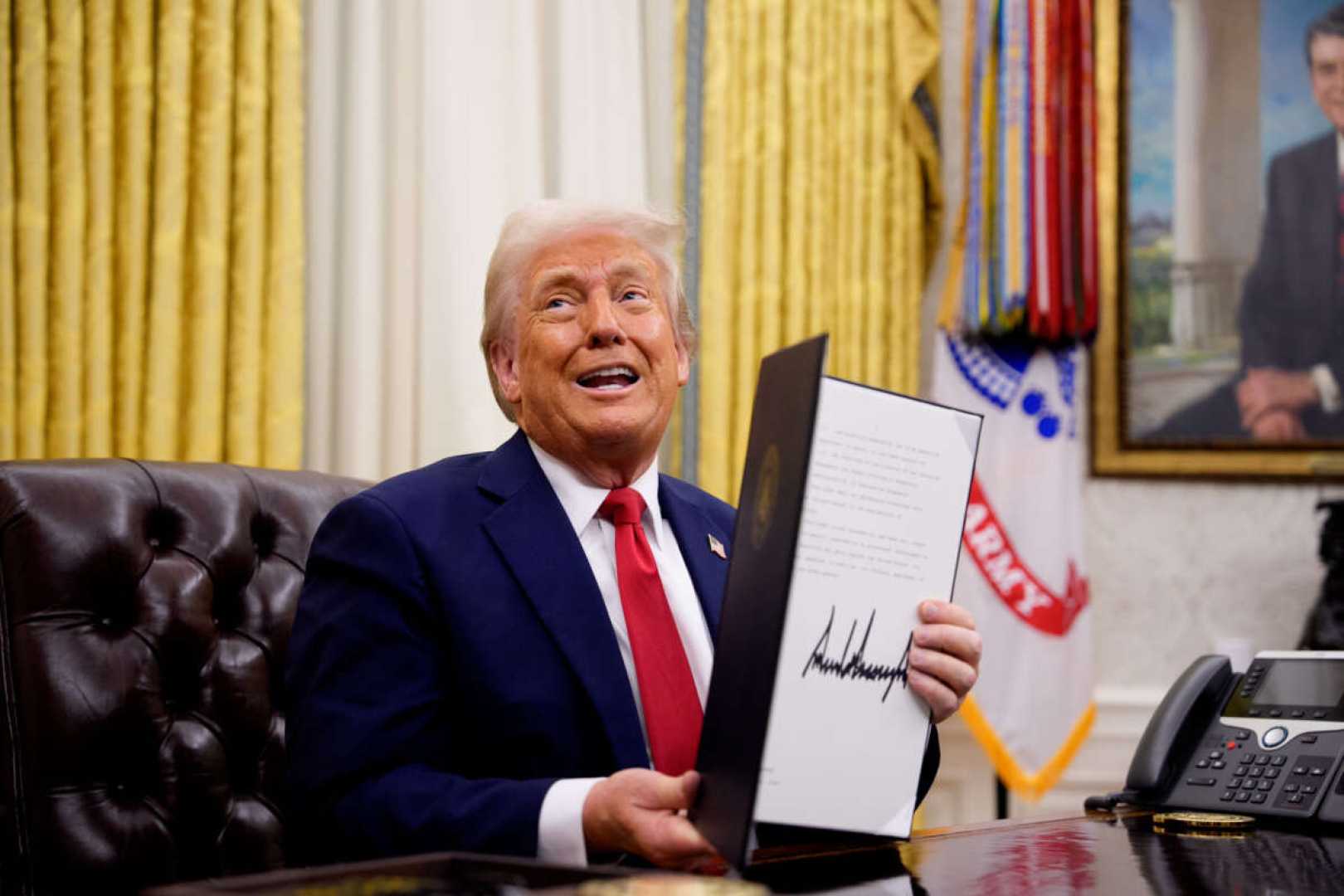Politics
State Leaders Push Back Against Trump’s Executive Power in 2025

WASHINGTON, D.C. — As President Donald Trump seeks to extend his executive power, state officials across the United States are raising their voices in opposition. This week, three prominent leaders have made headlines by firmly resisting Trump’s directives, underscoring a growing divide between the federal and state governments.
Maine Governor Janet Mills is no stranger to confrontation with Trump. In 2020, he labeled her a ‘dictator’ during a stop in the state, to which Mills retorted, ‘I have spent the better part of my career listening to loud men talk tough to disguise their weakness. That’s what I heard today.’ Fast forward to 2025, and Trump is once again targeting Maine, proposing cuts that could affect social services. Mills responded with a pointed statement: ‘This isn’t just about who can compete on the athletic field. It’s about whether a President can force compliance with his will, without regard for the rule of law. I believe he cannot.’
California also finds itself in a precarious position, threatening its economy as Trump considers imposing tariffs. Attorney General Rob Bonta recently took action by arguing that Trump is abusing the 1977 International Emergency Economic Powers Act to circumvent Congress. ‘Tariff authority belongs to Congress, not the Oval Office,’ Bonta said. ‘You can’t invent bogus national emergencies to grab power.’ Bonta’s proactive stance is fueled by the understanding that California holds significant risk if Trump’s economic policies hinder its growth.
Meanwhile, in Washington state, Superintendent Chris Reykdal is standing firm against Trump’s threats to cut federal education funding for states that refuse to eliminate diversity programs. Emphasizing that diversity and inclusion are ‘core values’ in Washington schools, Reykdal stated that despite his reliance on Title I funding for low-income students, the rights of children must remain a priority: ‘We will not capitulate.’
These three examples reflect a broader resistance from governors and attorneys general who are adamant about protecting their communities against what they perceive as federal overreach. Alaska Senator Lisa Murkowski articulated this fear prevalent among her Republican colleagues, noting, ‘We are all afraid. The retaliation is real.’ Her candid acknowledgment reflects the hesitancy among some Republicans to voice dissent against Trump, despite the escalating tension.
Murkowski’s frankness raises a significant concern about the political climate in Republican circles, particularly as Trump continues to centralize power. She has previously challenged Trump on multiple occasions, reinforcing her position as a voice of reason. With her re-election not looming until 2028, Murkowski explained the importance of using her voice: ‘That’s what you’ve asked me to do and so I’m going to use my voice to the best of my ability.’
The call for unity among those willing to stand up to Trump was echoed in a recent piece by Garry Kasparov in The Atlantic. He emphasizes the urgency of fighting for democracy, stating, ‘When fighting for democracy, you never know if there will be another day.’ Kasparov encouraged Americans to back the small number of Republicans willing to oppose Trump’s influence.
In Iowa, Nathan Sage, who is running for the U.S. Senate in 2026 against Republican incumbent Joni Ernst, embodies the fight for representation that resonates with working-class voters. A Marine and Army veteran, Sage brings a personal narrative of growing up poor and witnessing economic decline in his home state. As the executive director of the Knoxville Chamber of Commerce, he aims to connect with voters who feel neglected by both major parties. ‘I’m fighting for a Democratic Party that people like me will actually want to be a part of,’ Sage stated, highlighting his determination to bridge the gap that has led to disillusionment.
The stakes are high as the political landscape shifts. While President Trump aims to consolidate power, he is met with a determined coalition of state leaders committed to defending their constituents. As the struggle for democracy intensifies, the actions of these governors and attorneys general may become pivotal in shaping the future of American governance.












